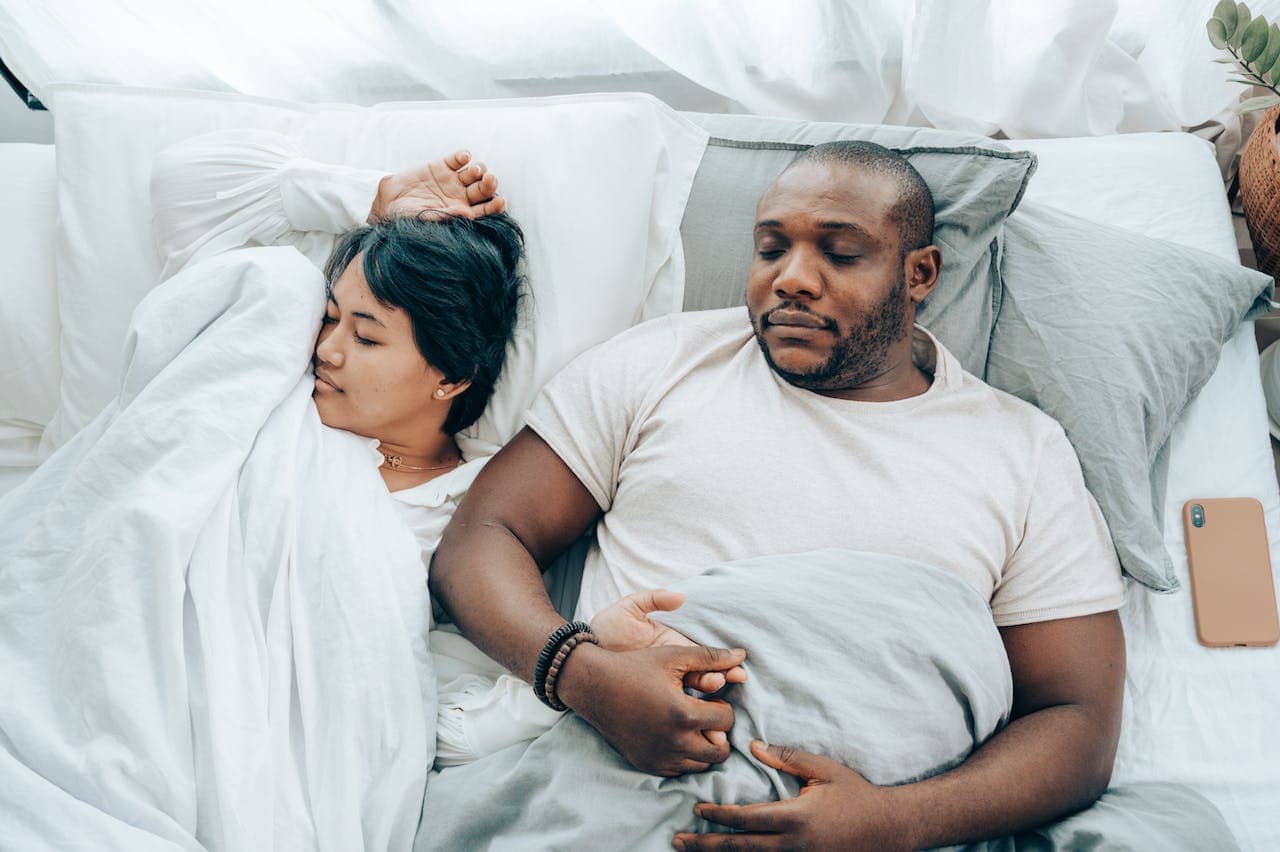Sleep is a fundamental aspect of our lives, an essential component that allows our bodies and minds to recharge, repair, and rejuvenate. It’s the time when dreams take us on journeys beyond the realms of reality, and our bodies engage in vital restoration processes. However, for those who have experienced a spinal cord injury, sleep can become a complex puzzle with missing pieces. Sleep disorders in spinal cord injury patients are a prevalent and often overlooked issue that can profoundly impact the overall well-being of individuals living with these injuries.
The Journey Begins: How Does a Back Injury Affect Your Sleep?
Let’s begin our exploration by understanding the intricate relationship between spinal cord injuries and sleep disorders. To do this, we must first grasp how a back injury can affect your sleep.
The Spinal Cord: A Vital Communication Pathway
The spinal cord, an intricate bundle of nerves running from the brain’s base to the lower back, facilitates vital communication between the brain and the body. This communication is essential for sensory perception, motor functions, and overall bodily harmony.
Impact of Spinal Cord Injuries on Sleep
When a spinal cord injury occurs, the communication system it facilitates is disrupted, resulting in various physical and sensory impairments. Depending on the injury’s severity and location, individuals may experience paralysis, weakness, or other complications that affect movement, sensation, and even breathing.
Disruption of Circadian Rhythms
The disruption caused by spinal cord injuries extends to sleep patterns, affecting circadian rhythms. These rhythms, regulated by the suprachiasmatic nucleus in the brain, govern sleep-wake cycles. When communication between the brain and the body is compromised, irregular circadian rhythms can lead to sleep difficulties.
Sleep Challenges for Spinal Cord Injury Patients
Spinal cord injury patients often struggle to find comfortable sleeping positions due to restricted movement. This discomfort can lead to difficulties falling and staying asleep, akin to trying to balance on a tilting seesaw constantly.
Exploring the Link Between Sleep Apnea and Spinal Cord Injuries
Spinal cord injury patients, particularly those with high cervical or thoracic injuries, face an increased risk of sleep apnea. Central sleep apnea, characterized by the brain’s failure to regulate breathing, is prevalent in this demographic.
Understanding Central Sleep Apnea
Unlike obstructive sleep apnea, where airway blockages cause breathing interruptions, central sleep apnea stems from brain signaling issues. This dysfunction directly correlates with the disrupted communication between the brain and the body in spinal cord injury cases.
Health Implications of Central Sleep Apnea
Central sleep apnea not only disrupts sleep but also poses significant health risks, including decreased oxygen levels, elevated heart rate, and potential cardiovascular complications. Managing sleep disorders like central sleep apnea in spinal cord injury patients requires vigilant assessment and intervention from healthcare professionals.
Unravelling the Complexities: Treating Sleep Disorders in Spinal Cord Injury Patients
Addressing sleep disorders in individuals with spinal cord injuries necessitates a collaborative effort among healthcare professionals. Through a multidisciplinary approach, practitioners strive to enhance sleep quality and overall well-being for these patients.
Respiratory Support Strategies
For spinal cord injury patients experiencing sleep apnea, non-invasive ventilatory support like Continuous Positive Airway Pressure (CPAP) or Bilevel Positive Airway Pressure (BiPAP) can be beneficial. These devices aid in maintaining optimal oxygen levels and ensuring uninterrupted breathing during sleep.
Optimizing Positioning and Comfort
Achieving a comfortable sleep position is paramount for spinal cord injury patients. Healthcare providers often recommend adaptive equipment and techniques such as pillows, wedges, and specialized mattresses to enhance comfort and improve sleep quality.
Emphasizing Sleep Hygiene Practices
Establishing healthy sleep habits and routines is crucial for managing sleep disorders. This includes adhering to a consistent sleep schedule, fostering a serene sleeping environment, and avoiding stimulants or heavy meals before bedtime. Incorporating proper sleep hygiene practices significantly contributes to better sleep quality.
Medication Considerations
While medications may be prescribed in certain cases to manage sleep disorders, they are typically reserved as a last resort due to potential side effects and risks. Healthcare providers carefully weigh the benefits and drawbacks before recommending pharmacological interventions.
Psychological Support and Counseling
The psychological toll of coping with spinal cord injuries and associated sleep disturbances cannot be understated. Mental health support and counseling play pivotal roles in addressing any psychological factors contributing to sleep disruptions, fostering emotional well-being alongside physical health.
Promoting Lifestyle Modifications
Encouraging lifestyle modifications such as regular exercise, balanced nutrition, and stress management can positively influence sleep quality in spinal cord injury patients. Adopting a healthy lifestyle contributes to overall well-being and aids in managing sleep disorders effectively.
Continuous Monitoring and Follow-up
Regular monitoring and follow-up appointments are imperative to evaluate treatment efficacy and make necessary adjustments. Since the impact of spinal cord injuries on sleep may evolve over time, ongoing care ensures that interventions remain tailored to the patient’s evolving needs.
Making a Serious Injury Claim with National Claims
If you or a loved one has experienced a spinal cord injury and believe that it was due to the negligence of another party, you may be eligible to make a serious injury claim. At National Claims, we understand the physical, emotional, and financial toll that a spinal cord injury can take on an individual and their family. We are here to guide you through the claims process and help you seek the compensation you deserve.
Our experienced legal team specialises in serious injury claims, including those related to spinal cord injuries. We have successfully represented numerous clients who have suffered such injuries, and we are committed to ensuring that you receive the support and compensation you need to move forward with your life.
The process of making a serious injury claim with National Claims begins with a free consultation. During this consultation, our legal experts will evaluate the circumstances surrounding your injury and determine whether you have a viable claim. We will listen to your story, gather relevant information, and provide you with a clear understanding of your legal options.
At National Claims, we are dedicated to providing compassionate and effective legal representation for individuals who have suffered serious injuries, including spinal cord injuries. We understand the challenges you face and are committed to helping you regain your quality of life.

Conclusion
In conclusion, sleep disorders in spinal cord injury patients are a multifaceted issue that requires comprehensive, multidisciplinary care. The disruption of the nervous system, the potential for sleep apnea, and the challenges of finding a comfortable sleep position all contribute to the complexity of this problem. However, with the right support and treatment, it is possible to improve the quality of sleep and, in turn, enhance the overall quality of life for these individuals. The journey towards better sleep begins with awareness, understanding, and a commitment to providing the care and support that spinal cord injury patients truly deserve.
In the United Kingdom, various organisations and research institutions are working tirelessly to improve the quality of life for individuals with spinal cord injuries. Their efforts encompass not only enhancing sleep-related care but also advocating for the rights and well-being of those affected. By shedding light on this often-overlooked issue, we can empower both patients and healthcare providers to address it effectively.
The journey to better sleep and a brighter future for spinal cord injury patients is ongoing. With advances in medical technology, increased awareness, and a commitment to comprehensive care, we can provide these individuals with the support and resources they need to lead fulfilling lives despite the challenges they face.
Start your claim with us today and speak to one of our claims specialists by contacting us.
Click below to see why we are one of the most trusted claims management companies in the UK.

We’re proud of our excellent customer reviews
We thrive on delivering exceptional service and ensuring our clients’ satisfaction. Don’t just take our word for it. Check out some of our independent reviews to see what our clients have to say.
Excellent

This firm is excellent, they sorted out my car pay out and injury claim very fast, they always communicate with you all the time.

My accident case was dealt with confidence and with great result of the outcome, especially James kept me informed all the time.

I was very impressed at the way my inquiry was treated. I was listened to attentively and everything I needed to know was explained to me.






